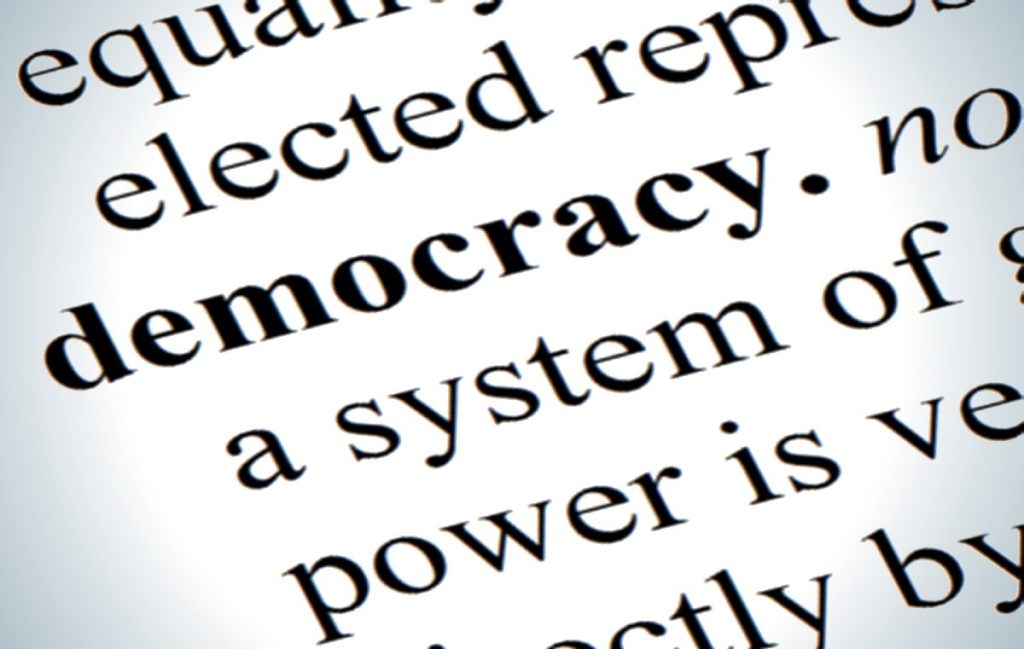
undemocracy noun [un.de·moc·ra·cy]. A country that asserts democratic values, but subverts democracy in practice. Usage: The United States of America is the world’s greatest undemocracy.
There are many countries far less democratic than the United States. According to the Economist Intelligence Unit (EIU), North Korea is the world’s least democratic country, and it keeps company with a host of other authoritarian states including China, Iran, Russia and Saudi Arabia. The EIU list and the recently published report by Freedom House on the civil liberties track record of countries is unsurprisingly similar. No one seriously considered the world’s political bottom dwellers to be democracies — no matter what style of fig-leaf electoral process they may adopt.
The appellation undemocracy is reserved for those states that claim to be democracies, behave in many ways like democracies, and simultaneously subvert the values of democracy in practice.
American Presidents, without irony, have described their country as The World’s Greatest Democracy (TWGD). Bill Clinton, Gerald Ford, and Barack Obama all described the US in those words. Other leaders believe it (or choose to agree with it). Israel’s Prime Minister, Bibi Netanyahu, used those words to describe the US in a speech to Congress in 1996, and President Reuven Rivlin of Israel, used them in a congratulatory statement to President Donald Trump on his electoral victory in 2016. And that is ironic!
‘In a recent article calling for the impeachment of Donald Trump, Thomas Friedman used turns of phrase which, while not identical in form to TWGD, strongly suggested that he genuinely believed the US was TWGD.
[The US] is a nation that at its best has always stood up for the universal values of freedom and human rights, has always paid extra to stabilize the global system from which we were the biggest beneficiary and has always nurtured and protected alliances with like-minded nations
The complication is that the US “talks a good democracy” but it does not practice one. This is evident in the two “winning” electoral strategies that are regularly adopted: the gerrymander and voter suppression.
Any approach to winning an election that subverts the fair count of eligible voters is inherently undemocratic. Politically clever. Astute. Undemocratic. The hypocrisy of claiming to be The World’s Greatest Democracy when winning relies on subversion is audacious (and obnoxious).
